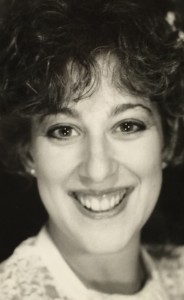Some years ago, a colleague whom I’d invited over for dinner was taken aback when he saw the age gap between my then-husband and me.
“He’s that much older than us? What’ll I talk to him about?” he asked.
“Hmm,” I answered. “Pretty much anything.”
Well, the dinner party was a success, with lively non-stop conversation ranging from food to recent films to world history. As my colleague said his goodbyes, he whispered, “Your husband isn’t an age, he’s. . . universal.”
Fast forward, and now I’m universal, too. As a freelance copywriter, I try to stay viable, current and employable. I keep up with marketing trends and new media platforms for engaging customers, to help my clients succeed. Research has always been my passion and I read everything about anything that comes across my radar. I watch reality shows to stay open-minded (as Dr. Seuss said, we’re all a little weird). I take care of myself with my puppy-dog’s help; my UP® wristband activity tracker shows an average 5.7 miles and 90 minutes of exercise together each day. Oh, and I have renewed hope for the future of rock music since I started listening to Imagine Dragons, The Griswolds and other alt rock bands. (Don’t the drums on “Beware the Dog” remind you of the beats on Paul Simon’s classic Graceland album?)
Hey, not trying to be something I’m not; this is who I always have been. There are a lot of people my age just like me. And yet…perception is killing us.
In job interviews (or yearly reviews), it’s not older workers’ expertise that is challenged. Instead, creativity, enthusiasm and energy for the task at hand may come into question, as well as the flexibility to learn new things—all buzzwords reflecting the negative perception of older workers, according to a University of Kentucky Institute for Workplace Innovation report. That same report, however, concludes that age and work performance are not related.
In general, research shows that supervisors have more negative images of older workers than the colleagues who work alongside them. Yet age-awareness is certainly there. I’ve found that young colleagues often seek to relate to me by starting a sentence with, “My mother….” Any off-the-cuff pop culture reference I make usually elicits a quick surprised laugh, followed by, “How do you know that?”
In spite of facing negative stereotypes, older workers generally have more favorable attitudes toward their jobs and higher levels of commitment than younger workers, according to research reported in the February 2013 International Journal of Business and Science. The people who end up hiring us are likely to view years of experience as a positive. They value honed craftsmanship and solutions pulled from a vast brain database—qualities that can save them time and money. Experienced workers bring credibility and stability to the workplace.
And yet, faced with two nearly identical resumes, an employer is far less likely to call the older person back for an interview. Only 6% of new hires are people ages 55-64 – an astonishingly low figure given that this age group accounts for about 20% of the working-age population under age 65.
For those who view my age as a negative, I don’t want to sue you. I don’t want to be you. I just need to earn a living. So I hope those of you in hiring positions think twice about how you really perceive older workers—and see if you can get past your biases to recognize individual worth.
Maybe we could all try a social experiment in our individual workplaces: Since the Age Discrimination in Employment Act protects workers over 40, ask employees older than 40 to pull out photos of themselves taken in their late 20s, and employees younger than 40 to apply aging software to current photos. Then turn the photos into facemasks that everyone must wear on a designated workday—just to see if, by the end of the day, people interact differently with each other than they did before, to the perception of age.

